APPAM Policy Council and Leadership Election
The Policy Council is APPAM's governing board and is responsible for setting policy and creating strategy for the Association. It currently consists of four elected cohorts serving staggered, four-year terms of office. The APPAM officers (ex officio voting); the APPAM Executive Director and the Editor of JPAM (ex-officio non-voting) comprise the Executive Committee; the Executive Committee is also part of the Policy Council.
Elections for the new four-person cohort on the Policy Council, President-Elect, Vice President and Secretary begins on Tuesday, December 19th. The election will run until midnight Eastern Time on January 18. Ballots will be emailed to all APPAM members in good standing.
Among the four person cohort for the Policy Council, one is a researcher in a non-academic setting; one is an institutional representative elected by the Committee of Institutional Representatives; and two are researchers in an academic setting; All will serve four-year terms.
Finally, one student is appointed annually to serve a two-year term on the Policy Council. There are two student seats on the Board and one new student is selected for service each year.
You can view a list of the current APPAM Officers, descriptions of each officer position, and the current APPAM Policy Council Members.
How to Vote
Voting for the next Policy Council cohort, who will serve from 2024 through 2027, and for Vice President and Secretary, who will serve from 2024 through 2025, begins December 19th. The election will conclude at midnight, Eastern Time, on January 19.
Follow the links below to the list of all nominees on this year's ballot. All current members will receive email instructions on how to vote on December 19 and will receive periodic reminders to vote until the January 19 deadline. If your membership has lapsed, you will not receive an e-mail with voting instructions. If you want to check the status of your membership, please do so here. If you have not received an e-mail and feel that your membership is current, please contact Tara Sheehan.
Leadership Nominees
The following is a list of nominees for APPAM's Officer Positions of Vice President and Secretary. Please note that President-Elect, Ingrid Ellen, was appointed to her position by the APPAM Nominating Committee and voted in by acclamation at the 2023 Fall Research Conference Membership Meeting. Her statement is being presented for transparency and completeness and is included in the ballot, although she is running unopposed.
President-Elect Nominee
Uncontested; serves a 1-year term, automatically becomes APPAM President after the 2024 Fall Research Conference.
Ingrid Ellen, New York University
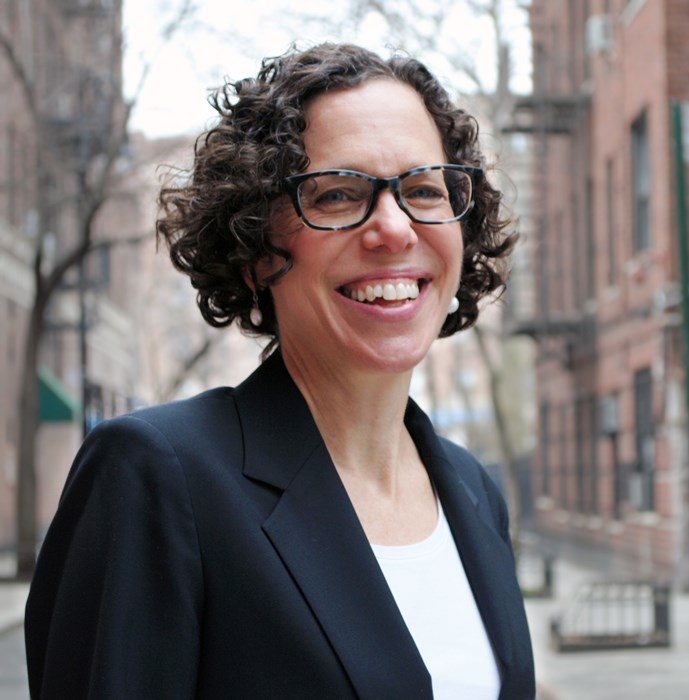 I am honored to be nominated to serve as the next President-Elect of APPAM and to have a chance to serve the association’s members. I am excited to work with policy council members and APPAM’s fantastic staff to broaden our membership and increase our impact on both scholarship and policy. My goals are to continue APPAM’s work to diversify the association’s membership, support junior scholars from a range of disciplines, and forge deeper connections and dialogue among researchers, practitioners, and policy makers from all levels of government.
I am honored to be nominated to serve as the next President-Elect of APPAM and to have a chance to serve the association’s members. I am excited to work with policy council members and APPAM’s fantastic staff to broaden our membership and increase our impact on both scholarship and policy. My goals are to continue APPAM’s work to diversify the association’s membership, support junior scholars from a range of disciplines, and forge deeper connections and dialogue among researchers, practitioners, and policy makers from all levels of government.
APPAM has been a professional home for me throughout my career. I have regularly attended the conference since I was a graduate student in public policy, as I continue to think there is no other venue that brings together the same diverse mix of multidisciplinary researchers and practitioners to engage with policy and management research. Over the years, I have served on the APPAM policy council, numerous conference program committees, and the Vernon, Kershaw, and dissertation prize committees. I also currently serve on the editorial board for JPAM and previously served as Policy Retrospectives editor.
Outside of APPAM, I am currently the Paulette Goddard Professor of Urban Policy and Planning at NYU Wagner and a faculty director at the NYU Furman Center, a multidisciplinary center focused on housing and urban policy. I have been on the faculty at NYU Wagner since receiving my PhD and prior to that, I worked at Abt Associates. I am just finishing my term as President of the American Real Estate and Urban Economics Association, and I have held visiting positions at the Urban Institute, the Brookings Institution, and the U.S. Department of Housing and Urban Development.
Vice President Nominees
One will be elected; serves a 2-year term; there are two Vice Presidents on APPAM's Executive Committee and Policy Council, serving staggered terms.
Stephanie Moulton, Ohio State University
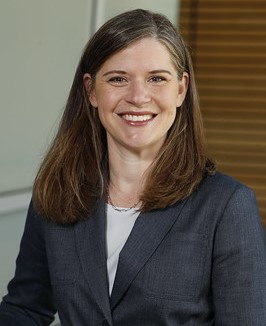 It is an honor to be nominated to serve as APPAM Vice President. I attended my first APPAM conference as a doctoral student in 2006 and immediately found my intellectual home. In fact, I met many of my mentors and current research collaborators at that first APPAM conference! Over the years, I have served multiple times on the conference program committee, both as section chair and as a reviewer, and I currently serve as a co-editor for the Journal of Policy Analysis and Management. I have been blessed to witness the growth and transformation of our association over the past two decades and am committed to continuing to foster the inclusivity of our association. We are an association that breaks down silos—silos between disciplines, silos between policy and management, silos between methodological approaches, and silos between research and practice. I am a bridge builder at my core and will work to nurture our established connections while constructing new on-ramps for future APPAM members.
It is an honor to be nominated to serve as APPAM Vice President. I attended my first APPAM conference as a doctoral student in 2006 and immediately found my intellectual home. In fact, I met many of my mentors and current research collaborators at that first APPAM conference! Over the years, I have served multiple times on the conference program committee, both as section chair and as a reviewer, and I currently serve as a co-editor for the Journal of Policy Analysis and Management. I have been blessed to witness the growth and transformation of our association over the past two decades and am committed to continuing to foster the inclusivity of our association. We are an association that breaks down silos—silos between disciplines, silos between policy and management, silos between methodological approaches, and silos between research and practice. I am a bridge builder at my core and will work to nurture our established connections while constructing new on-ramps for future APPAM members.
As a scholar, I also resist silos, with a research agenda that bridges the “P” and the “M” of APPAM. I hold a PhD in Public Affairs from Indiana University, with concentrations in both policy analysis and public management. Substantively, much of my research focuses on the design, implementation, and evaluation of housing and consumer finance policies and programs, with an emphasis on vulnerable populations. I often work directly with government and nonprofit organizations to evaluate and improve public policies and programs, conducting research that contributes to both scholarship and practice. I am currently a professor at the John Glenn College of Public Affairs at the Ohio State University, where I also serve as the Associate Dean for Faculty and Research. In line with my commitment to bridge to research and practice, I am also a Visiting Scholar at the Federal Reserve Bank of Philadelphia and serve on advisory boards for the Urban Institute’s Housing Finance Policy Center and the U.S. Department of Housing and Urban Development’s Office of Policy Development and Research.
Gary Painter, Cincinnati University
 As an active member of APPAM for the past 27 years, I am honored to be nominated to serve as a candidate for Vice President. I have previously served APPAM on the policy council, and on the program committee for housing and community development. I have presented papers, chaired panels, and discussed papers in sessions on housing and community development, immigration, and education policy. I have a keen interest in furthering the development of APPAM, in particular, its race/equity agenda. Relevant to this role, I have previously served on the executive committee of the American Real Estate and Urban Economics Association (AREUEA) as both President and Vice President.
As an active member of APPAM for the past 27 years, I am honored to be nominated to serve as a candidate for Vice President. I have previously served APPAM on the policy council, and on the program committee for housing and community development. I have presented papers, chaired panels, and discussed papers in sessions on housing and community development, immigration, and education policy. I have a keen interest in furthering the development of APPAM, in particular, its race/equity agenda. Relevant to this role, I have previously served on the executive committee of the American Real Estate and Urban Economics Association (AREUEA) as both President and Vice President.
After receiving my Ph.D. in economics from the University of California, Berkeley, in 1996, my research has spanned housing, urban economics, and education policy. In recent years, my work has focused on the emerging field of social innovation. In addition to my recent book on Social Impact Bonds, I work extensively with a variety of social innovation organizations and collective impact networks to address some of the grand challenges that society faces. Leveraging my work in housing, urban economics, and education policy, I continue to investigate how social innovation approaches can identify new models of social change within these complex policy areas.
After 27 years at the USC Price School of Public Policy, I recently assumed the BEARE Chair in Real Estate and serve as the Academic Director of the Center for Real Estate at the University of Cincinnati. I plan on finishing my tenure as the Director of the Homelessness Policy Research Institute in Los Angeles this year, and then will work with colleagues throughout the University of Cincinnati to launch a new University-wide Social Innovation Lab over the next year.
Mike Shires, University of Austin
 Today’s data-driven world and fragmented public policy environment call for leaders who can adapt and quickly leverage new methods and technologies to bring people together around solutions. While building on its tradition of rigorous and high-quality analysis, APPAM must embrace these new approaches and tools in its research, in its classrooms, in its practices, and in its membership. APPAM’s leadership must respond to this dynamism by helping scholars, practitioners, and policymakers embrace and respond to these changes while bringing our local, national and international communities together. My 30+ years of professional public policy experiences (and APPAM participation) have spanned all three of the critical domains which APPAM connects—research, teaching and practice. If selected as newest APPAM’s Vice President, I will work beside my colleagues to lead APPAM in finding new ways, methods and tools ensure that our work both informs and creates new opportunities and successes for our world’s diverse communities. The pace of change has left our current public policy mechanisms behind and we must be active leaders in building the new ones our communities so desperately need.
Today’s data-driven world and fragmented public policy environment call for leaders who can adapt and quickly leverage new methods and technologies to bring people together around solutions. While building on its tradition of rigorous and high-quality analysis, APPAM must embrace these new approaches and tools in its research, in its classrooms, in its practices, and in its membership. APPAM’s leadership must respond to this dynamism by helping scholars, practitioners, and policymakers embrace and respond to these changes while bringing our local, national and international communities together. My 30+ years of professional public policy experiences (and APPAM participation) have spanned all three of the critical domains which APPAM connects—research, teaching and practice. If selected as newest APPAM’s Vice President, I will work beside my colleagues to lead APPAM in finding new ways, methods and tools ensure that our work both informs and creates new opportunities and successes for our world’s diverse communities. The pace of change has left our current public policy mechanisms behind and we must be active leaders in building the new ones our communities so desperately need.
Secretary Nominee
One will be elected; serves a 2-year term.
Jillian Berk, Mathematica
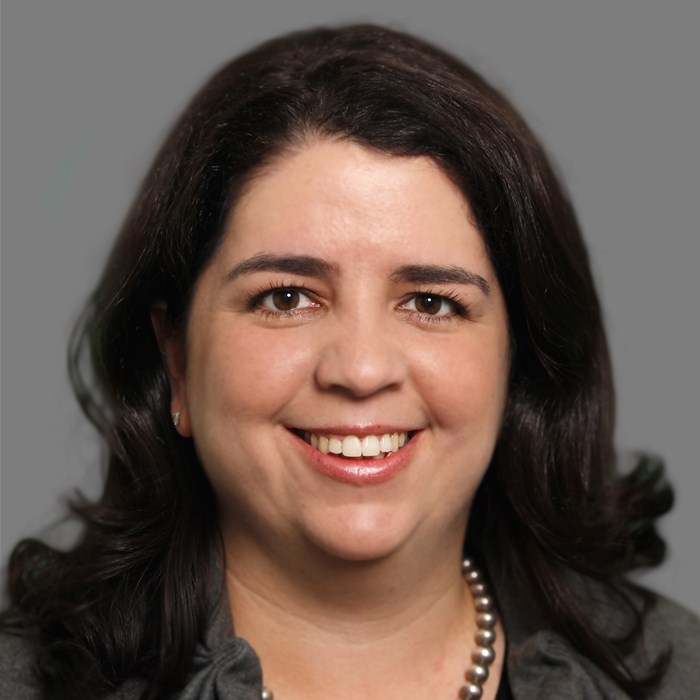 I am excited to be nominated to return to the APPAM Policy Council as the Secretary. Since I presented at my first APPAM conference 20 years ago, I have thought of APPAM as my professional home. Over the years, I have had the opportunity to present, organize sessions, discuss papers, judge posters, co-chair the employment program committee, serve on the Policy Council, review applications for the equity and inclusion fellowship, and host a resume workshop for students at this fall’s conference. At its best, APPAM is a place where individuals with diverse disciplinary training, professional, and personal experiences can come together to consider how to improve public well-being.
I am excited to be nominated to return to the APPAM Policy Council as the Secretary. Since I presented at my first APPAM conference 20 years ago, I have thought of APPAM as my professional home. Over the years, I have had the opportunity to present, organize sessions, discuss papers, judge posters, co-chair the employment program committee, serve on the Policy Council, review applications for the equity and inclusion fellowship, and host a resume workshop for students at this fall’s conference. At its best, APPAM is a place where individuals with diverse disciplinary training, professional, and personal experiences can come together to consider how to improve public well-being.
As Executive Director of the Education and Employment Division at Mathematica, I split my time between research and a management role focused on recruiting, staffing, and career development. I work closely with the Department of Labor and other federal agencies to build evidence about how the workforce system can partner with other entities including the criminal justice system, community colleges, behavioral health organizations, and employers to improve employment outcomes for historically marginalized workers and meet the country’s need for a skilled workforce.
I hope APPAM will continue to be an organization that strives to connect academic and non-academic researchers with practitioners and policy makers. I personally benefited from undergraduate training in public policy and mentorship within two institutional APPAM member organizations. I want to make sure that APPAM is a welcoming professional home that provides training, mentorship, and networks for all who are dedicated to improving public policy and management.
Anil Deolalikar, University of California, Riverside
 I am honored to be a nominee for Secretary of APPAM. I have worked closely with APPAM in the past. I am just finishing up a term on the Policy Council. Earlier, I worked closely with Tara and others at APPAM in establishing programs and plans for UC Riverside’s School of Public Policy, which I founded and led as Founding Dean for a decade starting in 2012. An important goal of the School is to cultivate and nurture a new generation of policy and community leaders from under-represented and disadvantaged communities in Southern California. The School was the first in the UC system to establish an undergraduate major in public policy that has become very popular of late (300+ students at last count).
I am honored to be a nominee for Secretary of APPAM. I have worked closely with APPAM in the past. I am just finishing up a term on the Policy Council. Earlier, I worked closely with Tara and others at APPAM in establishing programs and plans for UC Riverside’s School of Public Policy, which I founded and led as Founding Dean for a decade starting in 2012. An important goal of the School is to cultivate and nurture a new generation of policy and community leaders from under-represented and disadvantaged communities in Southern California. The School was the first in the UC system to establish an undergraduate major in public policy that has become very popular of late (300+ students at last count).
Much of my research is in the micro-economics of population, health, and education in developing countries. More recently, I have also published in the area of governance and accountability in public service delivery. I work extensively with international organizations, such as the World Bank, and several developing-country governments in Asia and Africa in developing and evaluating social-sector policies, programs, and projects. As dean, I ensured that SPP partnered with APPAM on several initiatives. For instance, in 2017, we hosted the inaugural APPAM California Regional Student Conference. In 2018, the School hosted APPAM’s Public Policy Camp, which brought undergraduate students, primarily from under-represented backgrounds, from around Southern California to expose them to graduate study opportunities and career pathways in public policy.
I plan to continue to work with APPAM on increasing the diversity and inclusion of its members – students, researchers, and practitioners – as well as on exploring international research and training collaborations with public policy institutions in developing countries.
Jane Lincove, University of Maryland, Baltimore County
 I am honored and grateful to be nominated to serve as Secretary for the APPAM Policy Council and proud to be a part of an organization that promotes rigorous policy research while striving to be expansive and inclusive. I am a Professor of Public Policy at the University of Maryland, Baltimore County. My research focuses on the equity and efficiency of market-based education policies including school choice, decentralization, teacher compensation, and college access.
I am honored and grateful to be nominated to serve as Secretary for the APPAM Policy Council and proud to be a part of an organization that promotes rigorous policy research while striving to be expansive and inclusive. I am a Professor of Public Policy at the University of Maryland, Baltimore County. My research focuses on the equity and efficiency of market-based education policies including school choice, decentralization, teacher compensation, and college access.
I have been an APPAM member since 2003, UMBC’s institutional representative to APPAM since 2016, and recently completed a term as a Policy Council Member. I have served on the Policy Relevance Committee and Institutional Reps Committees, hosted an APPAM Policy Camp at UMBC, and served as a Diversity and Inclusive Fellows Mentor.
I was fortunate to benefit from generous funding and supportive faculty in my policy education at UCLA (MPP) and University of Southern California (PhD), as well as mentorship and friendships formed at APPAM conferences and events. As a faculty member at a minority-serving university, I am committed to strengthening and diversifying the institutions of policy education and practice, including the vital relationship between APPAM and its current and future members. My experience with research-practitioner partnerships in my education policy research motivates me to pursue new ways to build relationships between research institutions, government agencies, and policymakers. As Secretary, I would continue to build opportunities for students and researchers from diverse backgrounds and institutions to meaningfully engage with APPAM.
Back to top of page.
Two will be elected for a 4-year term.
Lindsey Bullinger, Georgia Institute of Technology
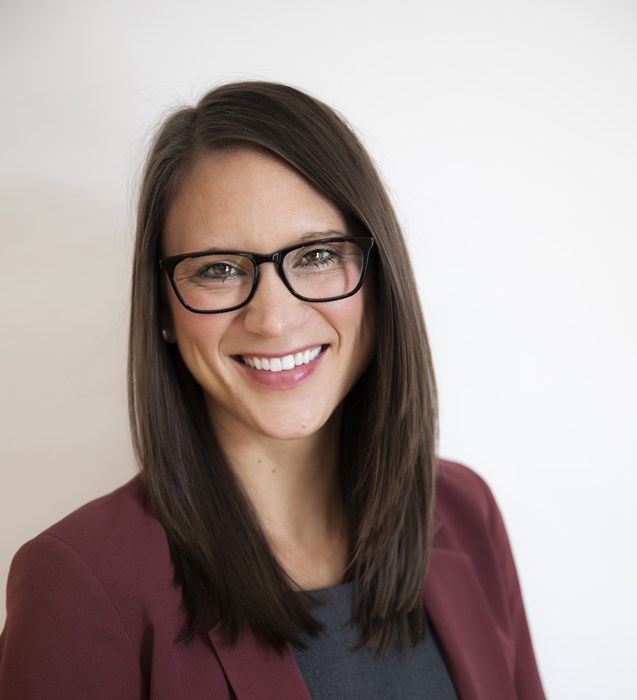 I am honored to be nominated for the APPAM Policy Council. I began attending APPAM as a graduate student at Indiana University's O'Neill School, and it has been my intellectual home ever since. APPAM events provide a diverse array of opportunities to advance scholarship. I have been fortunate to present and discuss numerous papers as well as chair and organize many panels. I have also served as a reviewer for paper/panels, organized "communities" to convene differing perspectives, and participated in mentoring and programming for students.
I am honored to be nominated for the APPAM Policy Council. I began attending APPAM as a graduate student at Indiana University's O'Neill School, and it has been my intellectual home ever since. APPAM events provide a diverse array of opportunities to advance scholarship. I have been fortunate to present and discuss numerous papers as well as chair and organize many panels. I have also served as a reviewer for paper/panels, organized "communities" to convene differing perspectives, and participated in mentoring and programming for students.
I have also been a member of JPAM's editorial board, served on the committee to confer "The Raymond Vernon Memorial Award," and was awarded the journal's Certificate of Excellence in Refereeing. I am eager to contribute to this esteemed organization in a more strategic capacity. My research lies at the nexus of child and family policy and health policy. My work focuses on the role of public policy in child and family well-being, with particular attention to children from low-income families. As an Assistant Professor in the School of Public Policy at Georgia Tech, I am committed to creating forums that connect the interdisciplinary community of researchers and policymakers working across research, policy, and practice.
Throughout my academic career, I have been devoted to illuminating evidence and data in policy decision-making, embracing research to fill knowledge gaps, and remaining passionate about improving outcomes for children and families. It would be a great privilege to serve the APPAM community and do the strategic work to advance APPAM's mission.
Seth Gershenson, American University
 Seth Gershenson is a Professor of Public Policy in the School of Public Affairs (SPA) at American University. He is also a Research Fellow at the Institute of Labor Economics (IZA), Director of AU's Ph.D. Program in Public Administration and Policy, and the founding coordinator of SPA's Analytics and Management Institute, and host of JPAM's Closer Look podcast. Professor Gershenson works broadly in the economics of education and education policy, with specific interests in teacher labor markets, summer learning loss, student absences, teacher expectations and grading practices, and teacher diversity. His research has been published in more than 30 academic journal articles, received more than $1,000,000 in external funding, and featured in media outlets such as USA Today, The New York Times, NPR, The Washington Post, NBC News, and The Atlantic. His most recent project, a book on teacher diversity policy, is now available from Harvard Education Press. He is currently working on a new book project about teachers' grader practices, high expectations, and grade inflation. Professor Gershenson received his Ph.D. in Economics from Michigan State University in 2011. You can learn more about Professor Gershenson's research here.
Seth Gershenson is a Professor of Public Policy in the School of Public Affairs (SPA) at American University. He is also a Research Fellow at the Institute of Labor Economics (IZA), Director of AU's Ph.D. Program in Public Administration and Policy, and the founding coordinator of SPA's Analytics and Management Institute, and host of JPAM's Closer Look podcast. Professor Gershenson works broadly in the economics of education and education policy, with specific interests in teacher labor markets, summer learning loss, student absences, teacher expectations and grading practices, and teacher diversity. His research has been published in more than 30 academic journal articles, received more than $1,000,000 in external funding, and featured in media outlets such as USA Today, The New York Times, NPR, The Washington Post, NBC News, and The Atlantic. His most recent project, a book on teacher diversity policy, is now available from Harvard Education Press. He is currently working on a new book project about teachers' grader practices, high expectations, and grade inflation. Professor Gershenson received his Ph.D. in Economics from Michigan State University in 2011. You can learn more about Professor Gershenson's research here.
If elected, his priorities would include (i) disseminating and translating the research conducted by APPAM members and research published in JPAM to a wide and diverse audience of academics, policymakers, and practitioners and (ii) ensuring that APPAM’s Fall, International, and Student Conferences are inclusive and add value to researchers of diverse disciplinary, methodological, career-stage, and institutional backgrounds in all fields in and adjacent to public policy and public management research.
Sarah Guthery, University of Oklahoma

I am honored to be on the slate this year for APPAM. Over the years, I have travelled internationally with APPAM, mentored graduate students, and enjoyed professional support through Women in Economics and other community groups. APPAM has been a wonderful source of inspiration and support for me, and I would be honored to help continue the tradition of excellence.
I am currently an Associate Professor in Educational Leadership and Policy Studies and the Director of the Institute for the Study of Education Finance at the University of Oklahoma. As a former teacher with a background in economics, issues impacting the educator labor market are at the heart of my research agenda. My research examines the influence of educational policy on the production, retention and promotion of educators, and the systematic inequalities educators face at each of those phases due to their race and gender. Additionally, I oversee research examining how efficiently the state spends its limited resources on K12 education, and how equitably those resources are distributed.
If elected, my goal is that everyone feels welcome, and that there is a place for their work and point of view. APPAM has a long tradition of welcoming diverse perspectives and serving as a unique forum where scholars from all disciplines can come to hear new and interesting perspectives from academia, policy research firms, foundations, and government agencies. As a member of the policy council, I hope to continue the legacy of facilitating deep and meaningful conversations that are accessible and welcoming to all.
Daniel Jones, University of Pittsburgh

I am excited to be nominated and considered for the APPAM Policy Council. I am currently an Associate Professor and PhD Program Director at the Graduate School of Public & International Affairs at the University of Pittsburgh. Much of my current research is focused on the interaction between politics and inequality in the United States. Some work for example studies barriers to representation and the political process; other work studies downstream policy impacts of representation.
I have been a regular APPAM Research Conference attendee for a number of years now. Early in my career, while working in an economics department, the conference was an exciting opportunity to engage with research and researchers outside of my discipline. Now, working in an interdisciplinary school, I value APPAM’s role in convening experts from across disciplines even more; it has become a ‘home’ conference for me.
In more recent years, I have become aware of and occasionally had the opportunity to participate in another side of APPAM: an organization committed to facilitating cooperation across schools of public affairs & public policy and providing support to those schools in their efforts towards preparing future administrators and policymakers. Having seen and benefitted from such efforts, I am eager to contribute to them in the coming years. I would approach a role on the policy council with aims of cooperation and collaboration in mind, as well as centering equity and inclusiveness in access to the professional opportunities afforded by the organization.
David Konisky, Indiana University, Bloomington

I have been an active member of APPAM for two decades, as a regular participant in the annual research conference, frequent organizer of panels, and past member of the program committee. APPAM is a unique organization that effectively brings together scholars and practitioners to engage in conversations about public policy and management, resulting in the advancement of evidence-based policy making and public administration.
The purpose and spirit of APPAM is embodied in my own research, which seeks to better understand the practice of environmental, energy, and climate policy and governance through applied inquiry, especially as it relates to issues of justice and equity. My research is informed by frequent engagement with federal, state, and local policymakers, nonprofit organizations, and other policy stakeholders, which helps me identify important questions and ground recommendations within the complicated institutional and political realities of policy implementation. In 2022, I was awarded APPAM’s World Citizen Prize in Environmental Performance in recognition of this work.
I would be honored to serve as a member of APPAM’s Policy Council, where I would work collaboratively with APPAM leadership and staff to advance the organization’s research, analysis, and educational mission. I would also enjoy the opportunity to help APPAM broaden its reach to more scholars, particularly early career researchers, as well as enhance the organization’s efforts to become more diverse and inclusive. Last, I am interested in helping APPAM position itself and its members to address society’s most important challenges, including climate change, income inequality, racial justice, and democratic decline.
Karin Martin, University of Washington
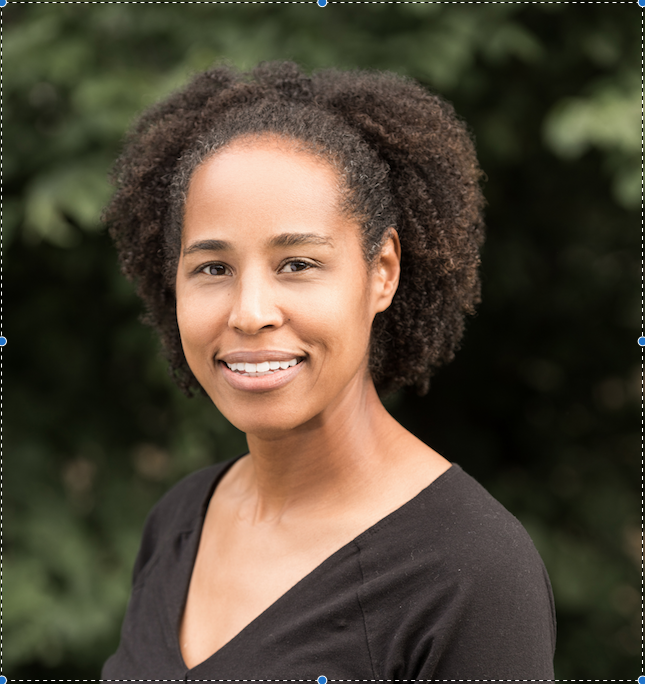
Not only has APPAM provided a critically important intellectual community for me since graduate school (UC Berkeley – Go Bears!), but the approach to public policy scholarship that APPAM embodies has deeply influenced my own work. Specifically, I am genuinely committed to interdisciplinary research and collaboration with practitioners. In broad terms, my research agenda explores both persistent and emerging problems in criminal justice policy. I have focused on monetary sanctions, criminal legal debt, and a broad swath of related government action. Ultimately, I am motivated by a desire to help develop effective and ethical public policy.
I work across disciplines and methodologies, publishing in and serving as a reviewer for journals in policy, sociology, psychology, socio-legal studies, and law reviews. I prioritize research that is readily relevant to policy-makers and I collaborate with practitioners, non-profits, and government agencies in order to help bring about larger systemic changes. I engage in public scholarship as a way of contributing to public discourse by elevating empirically rigorous research in widely accessible ways. I am therefore extremely motivated to assist in APPAM’s efforts to support, refine, and disseminate policy research that can be of use to broad audiences.
In service to the field, I have given direct testimony to the US Commission on Civil Rights in D.C. and to the New York State and Washington State Legislatures. I have also served on the Pew Charitable Trusts, Modernization Principles Working Group and am a reviewer on the MacArthur Foundation, Safety and Justice Research Review Committee. For two years, I was a member of the City of Seattle’s Office of Inspector General, Sentinel Event Review Panel, which was charged with reviewing the police response to protests in Seattle in May/June 2020 and crafting recommendations for policing policy.
I am an American Bar Foundation Affiliated Scholar and was an 2021-2022 ABF/JPB Foundation Access to Justice Faculty Scholar. I am Adjunct Faculty in the Sociology Department as well as Affiliated Faculty with the West Coast Poverty Center and the Center for Studies in Demography and Ecology at the University of Washington (Go Dawgs!). I have received the University of Washington’s highest teaching honor, the Distinguished Teaching Award. It would be an honor to contribute my experience to the important work of the Policy Council.
Back to top of page.
One will be elected for a 4-year term.
S. Michael Gaddis, NWEA (Education Non-profit)
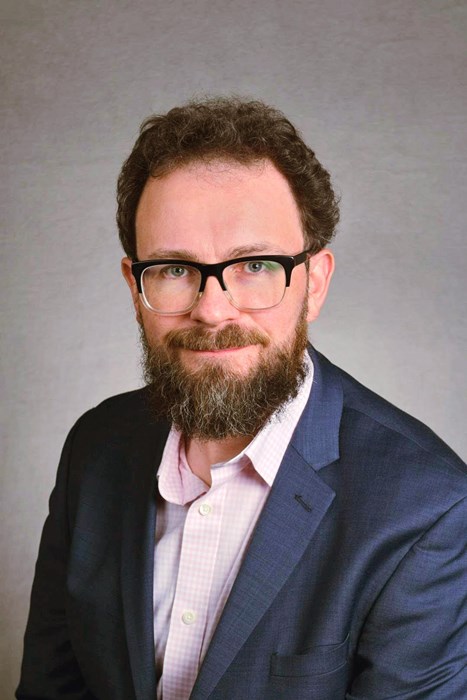 I am a Senior Research Scientist at NWEA and former Associate Professor of Sociology at UCLA. My research interests include rath and ethnicity, inequality, education policy, and mental health. APPAM has made a significant impact on my career to date as the conferences have allowed me to network beyond my discipline and present my work to a larger and more diverse audience. I first became an APPAM member in 2010 as a young graduate student and have attended the fall conference yearly, presented my research, and organized sessions. I have attended multiple preconference workshops at APPAM that have been exciting and informative. I enjoy the interdisciplinary aspect of APPAM and feel it is the most important organization I hold membership in. I would like to support the organization by volunteering to serve on the Policy Council. My initial ideas to help improve and build this great organization encompass two themes. First, while APPAM does a great job to create an inclusive environment for young scholars, I believe more can be done to be sure that we reach out to a more diverse set of scholars on the dimenstions of race, gender, and institutional affiliation. Second, I believe that APPAM can do more to bridge the gap between academics, professionals, and policymakers through workshops, training, research briefs, and networking events. I hope that I can increase the reach and value of APPAM by contributing to these and other important issues.
I am a Senior Research Scientist at NWEA and former Associate Professor of Sociology at UCLA. My research interests include rath and ethnicity, inequality, education policy, and mental health. APPAM has made a significant impact on my career to date as the conferences have allowed me to network beyond my discipline and present my work to a larger and more diverse audience. I first became an APPAM member in 2010 as a young graduate student and have attended the fall conference yearly, presented my research, and organized sessions. I have attended multiple preconference workshops at APPAM that have been exciting and informative. I enjoy the interdisciplinary aspect of APPAM and feel it is the most important organization I hold membership in. I would like to support the organization by volunteering to serve on the Policy Council. My initial ideas to help improve and build this great organization encompass two themes. First, while APPAM does a great job to create an inclusive environment for young scholars, I believe more can be done to be sure that we reach out to a more diverse set of scholars on the dimenstions of race, gender, and institutional affiliation. Second, I believe that APPAM can do more to bridge the gap between academics, professionals, and policymakers through workshops, training, research briefs, and networking events. I hope that I can increase the reach and value of APPAM by contributing to these and other important issues.
Jonathan Schwabish, Urban Institute
 I am honored to be nominated to join the APPAM Policy Council. As a PhD-trained economist with more than 20 years of experience, I am eager to help the APPAM community grow and find ways for research to have an impact on policy, people, and communities.
I am honored to be nominated to join the APPAM Policy Council. As a PhD-trained economist with more than 20 years of experience, I am eager to help the APPAM community grow and find ways for research to have an impact on policy, people, and communities.
My professional experience includes nearly a decade as an analyst at the Congressional Budget Office working on issues of retirement security and inequality. Today, I am a senior fellow at the Urban Institute where I conduct research on nutrition policy and policies that affect people with disabilities. I am also a member of Urban’s communications department where I assist our staff in creating effective charts, graphs, slides, and other means of data communication. I am considered a leader in the data communication field and am a leading advocate for clarity and accessibility in research. I have written and spoken extensively on ways to best communicate data, including the technical aspects of creation, design best practices, and accessible communication strategies for social science research.
During my time serving on the APPAM Policy Council, I propose to bring attention to these communication practices. How can the public policy and management community better communicate important analysis and research to stakeholders and policymakers? How can APPAM events, including the annual conferences, facilitate greater dissemination of knowledge through panels, roundtables, workshops, and poster sessions? I am especially interested in bringing together the academic and practitioner groups to find common areas of interest and collaboration.
Back to top of page.
Institutional Member Representative
One will be elected for a 4-year term
**Please note: only institutional members vote for the institutional member representative on the Policy Council.**
Phillip Armour, RAND Corporation
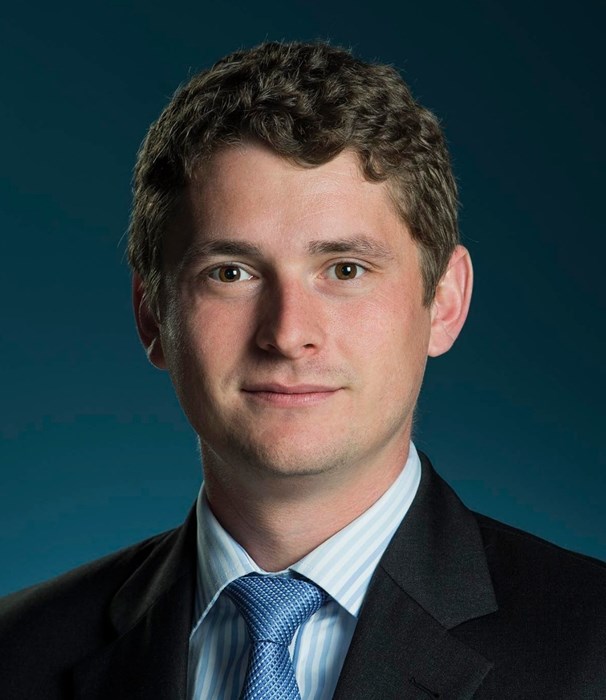
It’s an honor to be nominated as your Institutional Member representative on the APPAM Policy Council. I’m the institutional rep for Pardee RAND Graduate School, where I serve as director of our PhD in Policy Analysis and as a Professor of Policy Analysis, for which I’ve received numerous teaching awards for my classes on public economics and the economics of market failures. I’m also a Senior Economist at the RAND Corporation, where I direct the RAND Center for Disability Research, working at the intersection of health and labor across policy areas. As a RAND researcher, I publish both academically and via peer-reviewed RAND Reports directly for government agency sponsors, including the Social Security Administration, the Department of Defense, and the Department of Labor.
Not surprisingly, APPAM has been a tremendous community for me over the years – from presenting and interviewing as a grad student, to interviewing candidates and organizing panels as a RAND researcher, I’ve received substantial professional value. And I’ve tried to contribute in turn: I’ve served as a professional mentor multiple times, helped run the California student regional APPAM conference, served on the Poverty and Income Policy program committee, frequently refereed for JPAM, and this past year had the pleasure to serve on the APPAM dissertation award committee. I also had the honor of being awarded an APPAM 40 for 40 Fellowship for Outstanding Early Career Research Professionals, back when I was an early career professional.
If elected to the Policy Council, I will continue to add my perspective from RAND and Pardee RAND, including working with policymakers and communities directly to identify the real-world questions that need answers and the issues that need elevating; understanding what skills and knowledge future policy researchers need, especially when it comes to experiential learning opportunities and drawing on new technologies; and expanding continuing education in the latest methods and technologies to career researchers. In short, ensuring that our student and researcher members know what questions need answers and how to answer them. Coming from RAND, I can also contribute insight on the current policy funding environment on both the private and public sides, as well as constantly reaffirm the importance of rigorous, peer-reviewed, unbiased policy research that can be trusted by the public and by policymakers.
In addition to directing RAND’s Center for Disability Research, I am also a charter member and recently co-chaired RAND’s employee resource group for staff with disabilities, and I aim to bring the same commitment to inclusivity and accessibility for engaging policy professionals of all lived experiences to APPAM’s community.
Dan Mallinson, Penn State University, Harrisburg

I would be honored to serve on the Policy Council as a representative of our Institutional members. I am an Associate Professor of Public Policy and Administration at Penn State Harrisburg (PSH) and the Professor-in-Charge for the Masters in Public Administration. I teach undergraduate, masters, and doctoral courses in public policy process, policy analysis, and research methods. My research focuses on policy process theory, cannabis policy, and energy policy. I have served as PSH’s inaugural Institutional Representative since 2019. In 2022, I led Penn State Harrisburg’s APPAM-sponsored Public Policy Camp. I have also been involved in conference abstract reviews for the Fall Conference and Student Research Conference.
Serving on the Policy Council would be a privilege. I have been active as an institutional representative in promoting APPAM programming to our students at all levels. The Association has provided them opportunities to develop as scholars, including presenting research, chairing discussions, receiving fellowships, and receiving valuable feedback on their work. I regularly suggest the Fall Conference as a great opportunity to build a profile in the policy community. Graduate education and care for graduate students would be areas of focus for me, if I serve on the council. I was part of an editorial team that produced the American Political Science Association’s Strategies for Navigating Graduate School and Beyond (https://apsanet.org/gradschool) and I would love to encourage APPAM to consider how it can increase its support for current and future graduate students who are the future of our profession. I also look forward to bringing any issues of concern raised by my fellow institutional representatives to the council.
Back to top of page.